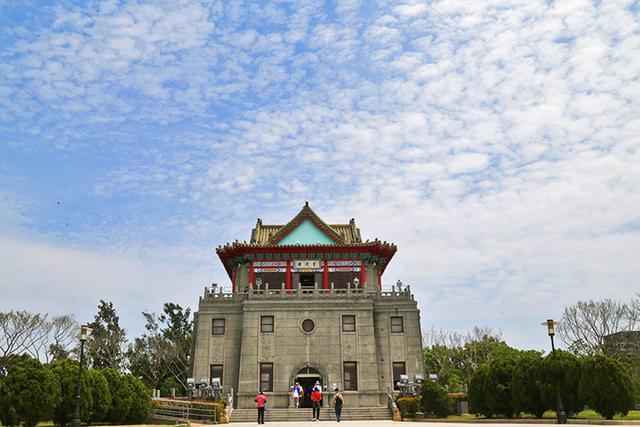By the way, the world: the disappearance coastline -the worries of the island country Tuvaru
Author:Music club Time:2022.08.16
This article has obtained words that the world public account authorization is issued
This content was published by the People's Publishing House 20 Volumes of the World
Glacier retreat
The Eskimo people are on the newly exposed ground and dance
Rising on the sea
The Tuvaru people shed tears in the homeland swallowed by the sea

Greenhouse effect
In recent years, the global warming seems to bring the gospel to the Eskimos in the Arctic Circle, and the constant melting glaciers have let them dance, because the land and resources that have been sleeping for tens of millions of years under the glacier will bring them a richer life; and On the Pacific Ocean, which is tens of thousands of kilometers away, the rising sea surface is gradually devouring the last place of the Tuvaru people.
At present, climate change has become one of the serious challenges facing the world. Natural disasters and greenhouse effects caused by global warming have caused dozens of doors in the Pacific region. Population of population, energy shortage, and economic and political turmoil in some areas. Nearly 70 % of the coastal belts around the world, especially the lower -terrain, the Delta Plain will be Chengze, and seawater can invade 20, 30 to fifty or sixty kilometers.

Tuvaru is the second small island country in the world second only to Nauru. It consists of 9 ring -shaped coral island groups in the South Pacific. The land area is about 26 square kilometers. The population of Tuvaru is more than 10,000, and the transportation is mainly water transport.
And as the sea level rises, the coastal areas lower than the sea level will face the danger of being drowned by the sea. If greenhouse gas emissions cannot be effectively controlled, global warming will cause many world -famous cities, such as New York, London, Amsterdam, Venice, Sydney, Tokyo, Rio de Janeiro, Tianjin, Shanghai, Guangzhou and other places. Some low island countries in the South Pacific and Indian Ocean will also be semi -drowned.
The Pacific Island country Tuvalu faces this terrible sinking fate. From 1993 to 2012, Tuvaru's sea level rose nearly 10 cm. At this speed, half a century later, the plane of Tuvalu Sea will rise by 37.6 cm. This means that after 50 years, more than half of the Tuvaru land will sink in the ocean forever. In November 2001, the leader of the island nation in the Pacific Ocean said in a statement that their efforts to rise in the sea level have failed, and the residents of the country will gradually evacuate.
The hometown of the Tuvaru people is located in the South Pacific, consisting of 9 ring -shaped coral island groups, and the land area is only 26 square kilometers. The capital Finafa is located on the main island with an area of not more than 2 square kilometers. The largest waves on the island are 3.2 meters, while the highest place in Turwalu's highest altitude is only 4.5 meters.
The Minister of the Ministry of Environment of Tuvaru said: "In the past, the main food of the Tuwaru people was a taro named Pulaka, which could grow to about 1 meter high. Previously, residents planted Pulaka and some vegetables in the depression. The altitude is higher than the sea level, and the surface can store a thin layer of fresh water. Now, the depression is already lower than the sea level, and the seawater can not grow taro and vegetables. Most of them rely on imports. "

At the entrance of the Tuwa Luka Lake, the lagoon refers to a local seawater area that is separated from the outer sea that is separated by sand, sand dams, or corals. Tuvalu is composed of ring coral island groups and is called "nine shiny pearls". These coral lagays are surrounded by ring coral reefs or are separated from dam -shaped coral reefs.
Due to the lack of land resources, Tuvaru has no complete agricultural production, no industry, and only some scattered service industries. The locals mainly rely on the help of a student or a relatives who settle abroad to live. In other words, Tuvaru has no output. It is too small to a towel toothbrush and large air -conditioned motorcycle. All of them must be dependent on imports. One ordinary towel in Lu Chao City is about $ 17, a radio is $ 35, and 1 bottle of mineral water is $ 2. From this point of view, the most common daily life is also a luxury in Tuvalu, which is even worse for them who are poverty.
The people of Tuwaru also feel desperate for the future of the future. By 2009, at least 6,000 people had left Tuvalu to immigrate overseas, but there are only 10,000 people living in Tuvalu. They still bear huge pressure on life. In terms of living facilities, Tuvaru has only one high school, not even a technical school. Therefore, even if a member of the work is produced, you can only do a low technical work, such as engaging in heavy physical fruit planting industry and agriculture, urban cleaners, and so on. Even if Tuvar residents want to escape from the homeland that is about to be submerged by the sea, no country is willing to receive Tuvaru immigrants.
- END -
The beautiful ocean building in the south and north mountain settlements of Kinmen has become a muse

The architectural styles of Kinmen Nanshan settlement and Beishan settlement are ...
Medical Heart to the Party · Medical as the People | Fire Red July Wei Jian is acting -the Taiyuan Municipal Party Committee Health Work Committee celebrates the 101st anniversary of the founding of the party

On the occasion of the 101st anniversary of the founding of the Communist Party of...